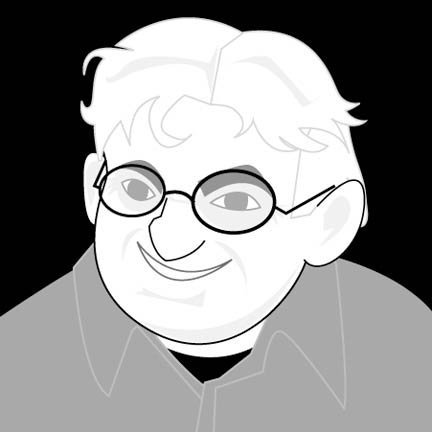The Godfather
R. David Unowskys random thoughts on politics, the price of produce, and faux-hometown marketing

1) The unemployment folks sent me a letter. In order to receive my benefits, I must attend a meeting at the workforce center. There were about 25 of us at the meeting: male, female, all races, all ages—from 20 to 70. We were there to learn about the resources at our disposal. For the life of me, I couldn’t figure out what we all had in common. Then the meeting convenor told us: you all are in the group that is expected to take the longest time to get another job. How’s that for a kick in the old PMA (positive mental attitude, for the uninitiated in self-help speak)?
2) Sun Tzu, Machiavelli and the Book of Five Rings all tell us that, in war and politics, knowing as much as possible about your enemies is essential. Such knowledge lights the pathway to success, victory or peace. One of the best ways to understand the culture, values and mythology of any enemy group or nation is to read their literature. It seems this is intuitively obvious to everyone except the government of the United States of America. Our Treasury Department has told publishers that any editing, translating, illustrating done on books from countries facing U.S. sanctions—Iran, Iraq, North Korea, Syria, Cuba are just a handful—constitutes trading with the enemy and is punishable by a fine of up to $500,000 and up to ten years in the slammer. Clearly, according to this administration, ignorance is bliss.
Several years ago, a small publisher was having some books made in China to save money. Apparently, the Chinese government took offense to the book’s content and impounded the lot of them. In vain, I waited for the Association of American Publishers to come to aid of this small press, make a public statement, threaten a boycott. Alas, I’m still waiting. I guess cheap printing is more important to them than intellectual freedom.
This time, however, with the sweeping prohibition on publishing work done with authors from embargoed countries, the AAP has stepped up to the plate with the appropriate letters and lawsuits. It is, after all, their ox that’s being gored. This issue will be played out over the next several months. Hopefully, we’ll hear about it in more venues than the back pages of the New York Times.
3) Amazingly, despite attempts by the state and the feds, there are still resources available for me and other displaced workers. I am currently upgrading my computer skills. There’s a place for me to go where I can—at no charge—work at my own speed through Word, Excel, Access and the rest of the Microsoft Office suite. Tutors are there daily from 8:30 to 5:00 to provide help. Who says an old dog can’t relearn old tricks?
4) Whyizzit—lovers of the Second Amendment hate the First Amendment and vice versa?
5) Now that we know there are no weapons of mass destruction in Iraq and that Saddam had nothing to do with 9/11, we’re told that by spreading democracy to the Middle East, we will stop the growth of terrorism and make the world a safer place. If this is indeed the truth, why have we not heard about a U.S. push for the quick democratization of Saudi Arabia—the place with the highest concentration of both wealth and organized terrorist outfits? And why is Qaddafi now our pal?
6) Whyizzit—at the farmer’s market, I can buy five beautiful, fresh red bell peppers for $1.67; at the grocery store, I pay more than that for one, stale, ugly one?
7) Lately, particularly on the radio, I’ve been hearing more businesses marketing themselves as your “locally owned” this and “hometown” that. Even Ford Motor Company got in the act. The auto giant’s not only talking about its “hometown” dealers; somehow they even imply that that they, too, are part of this local-family-owned thing, because the company and products bear the Ford family name. (Given that old Henry Ford was such a racist and anti-Semitic hog that even America-Firsters disowned him in 1940, it might be prudent for Ford to disavow too much sentimental leaning on the name.)
In the late ‘40s and ‘50s, Americans fled small towns for the city as fast as they could. Next came the flight to the ever-sprawling ‘burbs. Now that we have the return of empty-nesters to the city, there’s a lot of nostalgic talk about “hometown.” Perhaps the most bizarre side effect is the building of shopping malls made to look like small towns or like the old-time downtowns in mid-size cities of the 1950s. Hometown as theme park. I see the irony here, but I don’t understand the trend. If you have any additional insight on the phenomenon (or if you’d like to offer me a job), e-mail me at rdu@ruminator.com.